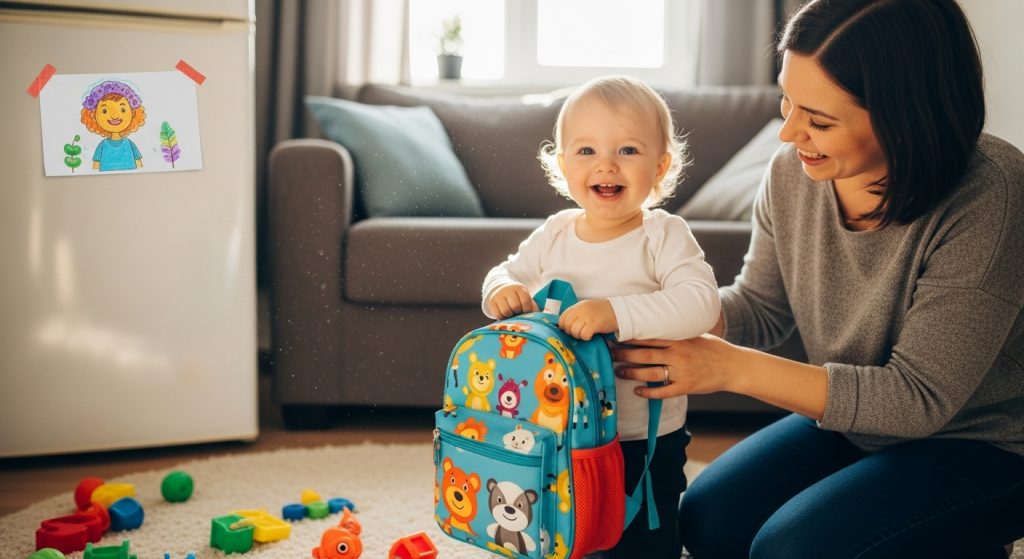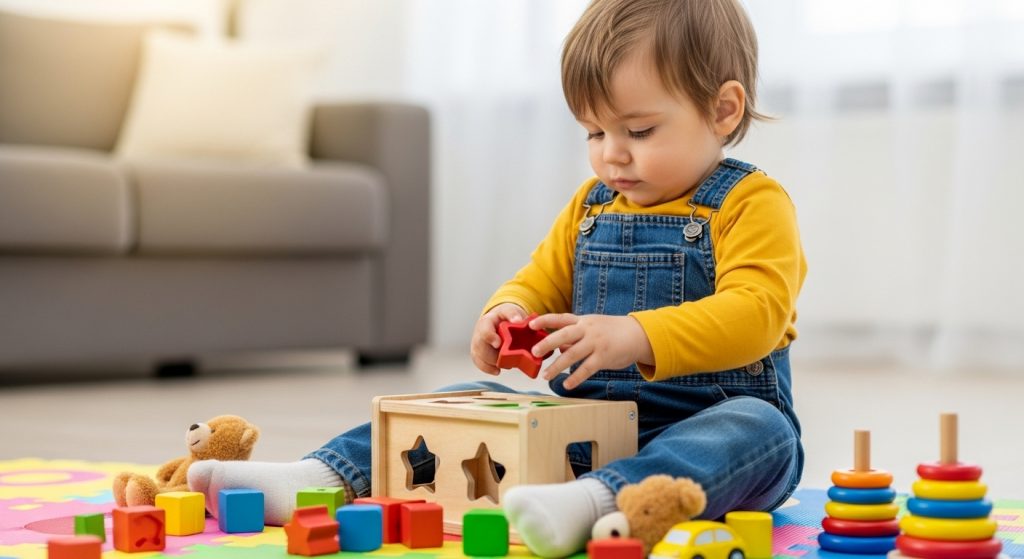5 Core Skills Every Child Should Master Before Starting Daycare
Introduction
When your child embarks on their educational journey, solid preparation in everyday life skills can make all the difference. Cultivating independence, communication, and problem-solving from an early age lays the groundwork for a smooth transition to the classroom and beyond.
Quick Overview:
- Attentive Listening and Response
- Story Comprehension and Retelling
- Foundational Math and Shape Recognition
- Self-reliance and Persistence
- Social Interaction and Clear Expression

Attentive Listening and Response
Encourage your child to follow straightforward, daily instructions—first one-step tasks like “Please bring your cup,” then advancing to two-step directions like “Gather your crayons and put them in the box.” This skill strengthens their ability to understand and act on teachers’ guidance.
Story Comprehension and Retelling
Cultivate a daily reading routine—whether through simple picture books, puppetry, or imaginative role-play. After hearing a story, guide your child to recount it in their own words. This nurtures listening skills and the early foundations of literacy, including recognising letter sounds and rhymes.

Foundational Math and Shape Recognition
Everyday encounters—like shopping trips or cooking at home—are golden opportunities to teach basic counting, colors, and identifying shapes. For instance, ask them to count apples or name shapes in the kitchen. Interactive play using building blocks, crayons, or dough can reinforce these skills in a playful, tactile way.
Self-Reliance and Persistence
Empower your little one by gradually giving them tasks to handle independently. Begin with simple activities like wearing clothes correctly—zipping jackets or buttoning shirts. Even letting them assemble their own sandwich builds confidence. Reinforce resilience by encouraging them to think through problems on their own, giving you peace of mind when they’re in new environments.
Social Interaction and Clear Expression
Social readiness isn’t just about sharing toys—it includes taking turns, showing empathy, and communicating needs. Playing board games or group activities helps teach turn-taking. Use real-life scenarios to explain feelings—like why a friend might feel sad. Couple that with practice phrases such as “Can I use the restroom?” or “I need help, please,” to bolster their ability to articulate needs in the classroom.
Wrapping Up
By the time a child is about six years old, they’ve usually developed habits that form the basis of their personality and independence. Equipping them with listening, storytelling, social interaction, basic academic readiness, and emotional resilience supports a positive early school experience—and supports parents too.
👉 Ready to book a visit? Fill out the Famly Enquiry Form and our nursery staff will contact you.
You can also reach us on 01707 817 404 or info@4kidzchildcare.co.uk
Recent Blog Posts
- All Posts
- Blog
- News
- Uncategorised

Parenting is richly rewarding yet often overwhelming. Amid daily demands, it’s easy to lose sight of what truly nurtures the...

Playtime isn’t just for fun—it’s one of the most effective ways to support your child’s learning and development. With a...

At 4Kidz Childcare, we know that playtime isn’t just about fun—it’s a vital part of your child’s development. Spending time...
